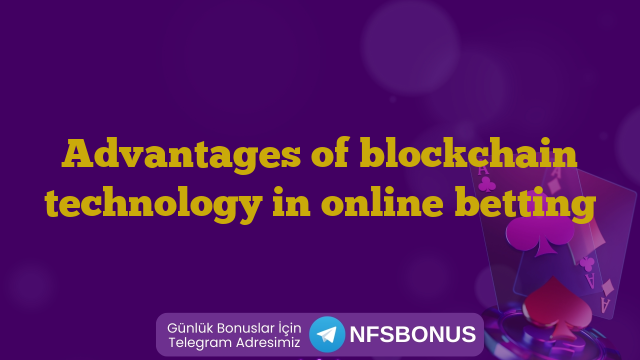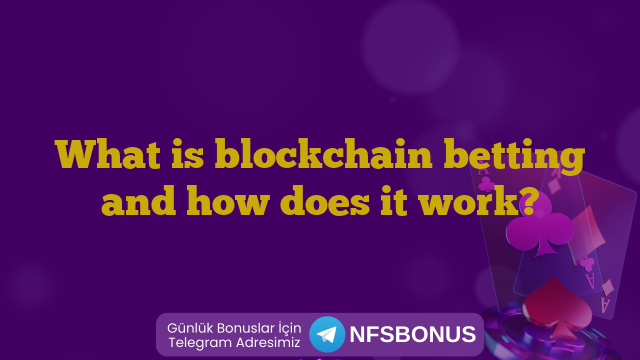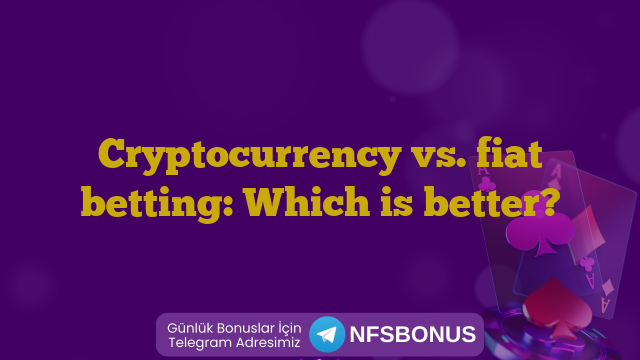In a rapidly evolving digital landscape, blockchain technology stands at the forefront of revolutionizing various industries, and online betting is no exception. With its promise of enhanced security, transparency, and efficiency, blockchain is transforming the way bettors engage with their favorite games and platforms. This article explores the myriad advantages offered by blockchain in the realm of online betting, from the fortified security of transactions to the empowerment of users through decentralization. As we delve into the core principles of blockchain and its impact on operational costs and transaction speed, we will also uncover the role of smart contracts in automating betting agreements. Join us as we navigate the future prospects of blockchain in shaping a more trustworthy and user-centric betting experience.
Understanding Blockchain Technology and Its Core Principles
Blockchain technology is fundamentally transforming various industries, including online betting, by leveraging its core principles to enhance functionality and engagement. At its heart, blockchain is a distributed ledger technology that allows data to be recorded across numerous computers in a way that ensures the security, transparency, and integrity of the information.
One of the key principles of blockchain is decentralization. Unlike traditional systems where a central authority manages transactions, blockchain operates on a consensus mechanism. This means that all transactions are verified by a network of participants, making it nearly impossible for any single entity to manipulate the data. This decentralization provides users with greater control over their transactions and enhances their trust in online betting platforms.
Another core principle is immutability. Once a transaction is recorded on the blockchain, it cannot be altered or deleted. This feature ensures that all betting activity is permanent and can be audited at any time, providing users with a reliable history of their bets. Immutability protects against fraud, significantly lowering the risk of disputes in online betting scenarios.
Furthermore, blockchain employs advanced cryptography to secure data. Each transaction is encrypted and linked to the previous one, forming a chain of blocks that are resistant to hacking. This level of security is critical in the online betting industry, where user trust and data privacy are paramount.
The principle of transparency is integral to blockchain technology. All participants in the betting ecosystem can access the same transactional information, which eliminates ambiguity and ensures fairness in gaming. This transparency appeals to users seeking trustworthy platforms, thereby enhancing the overall user experience.
Understanding blockchain technology and its core principles is essential to appreciating its advantages in online betting. By providing decentralization, immutability, security, and transparency, blockchain sets the groundwork for a more reliable and efficient betting environment.
How Blockchain Enhances Security in Online Betting
Security is paramount in the world of online betting, where large sums of money and sensitive personal information are at stake. One of the significant advantages of blockchain technology is its ability to enhance security through several key mechanisms.
Firstly, blockchain operates on a decentralized network, which means that there is no single point of failure. This architecture reduces the risk of hacking and fraud, as attackers would need to compromise multiple nodes spread across the network rather than targeting a centralized database.
Additionally, blockchain employs advanced cryptographic techniques to secure transactions. Each transaction is encrypted and linked to the previous one, forming an immutable chain. This ensures that once a transaction is recorded, it cannot be altered or deleted, providing a high level of confidence in the integrity of the betting process.
Moreover, the transparency provided by blockchain technology allows users to verify transactions independently. Bettors can track their bets and see clear evidence of how their funds are managed, enhancing trust in the betting platform. This level of visibility is critical in reducing cases of fraud and ensuring that all parties adhere to the rules.
Smart contracts also play a crucial role in enhancing security. These self-executing contracts with the terms of the agreement directly written into code automatically enforce betting outcomes without the need for intermediaries. This minimizes the potential for human error and deliberate misconduct, further securing the betting process.
The application of blockchain technology in online betting significantly enhances security by decentralizing operations, employing cryptographic protections, ensuring transparency, and utilizing smart contracts, making it an attractive option for both bettors and operators.
The Role of Transparency in Blockchain-Based Betting Systems
One of the key advantages of blockchain technology in online betting is its inherent transparency. Traditional betting systems often operate behind closed doors, leaving participants with little trust in the odds, payouts, and the integrity of the games. However, blockchain shifts this paradigm dramatically.
Every transaction made on a blockchain is recorded in a public ledger that is immutable and accessible to all participants. This means that bettors can independently verify the outcomes and conditions associated with their bets. By allowing users to see the entire history of wagers and the algorithms determining outcomes, the blockchain fosters a sense of trust among its users, which is essential in the gambling industry.
Additionally, transparency mitigates the risk of fraud and manipulation, which are prevalent in traditional betting platforms. Players can review the betting history and even audit smart contracts that govern betting agreements, ensuring fairness and reducing doubts regarding the operations of the betting platform.
This level of visibility not only improves user trust but also promotes a more responsible gambling environment. With access to real-time data and insights, bettors can make informed decisions, enhancing their overall experience.
The transparency offered by blockchain technology serves as a significant cornerstone of its application in online betting, providing users with clarity and confidence while highlighting one of the most notable advantages of adopting this innovative technology.
Advantages of Faster Transactions with Blockchain Technology
One of the most significant advantages of implementing blockchain technology in online betting is the speed of transactions. Traditional online betting platforms often grapple with delays caused by banking processes, payment gateways, and interbank transfers. With blockchain, these processes can be streamlined and expedited.
The distributed ledger technology behind blockchain allows for real-time transactions without the need for intermediaries. When a bet is placed, the transaction is recorded on the blockchain almost instantly. Players can expect to see their deposits and withdrawals reflect immediately in their accounts, which enhances user experience and satisfaction.
Moreover, the elimination of third parties not only reduces the time taken for transactions but also minimizes associated fees. Players can benefit from lower costs and quicker payouts, allowing them to engage in betting activities more fluidly. This efficiency is especially crucial during high-stakes betting events, where timing can significantly impact user decisions.
The advantages of faster transactions provided by blockchain technology empower users in the online betting landscape, enhancing both their experience and engagement in various betting activities.
Decentralization: Empowering Users in Online Betting
Decentralization is one of the most significant advantages of blockchain technology, particularly in the realm of online betting. Traditional betting platforms often operate on a centralized system where a single entity controls all activities, from user registrations to transaction processing. This central authority can create several hurdles, including unfair practices, data manipulation, and privacy concerns. In contrast, blockchain technology decentralizes the betting process, empowering users in the following ways:
- Ownership and Control: With a decentralized system, users retain ownership of their funds and data. Unlike traditional platforms, where the operator manages user accounts, blockchain enables bettors to transact directly with each other, thus ensuring greater control over their assets.
- Reduced Risk of Manipulation: Decentralization significantly lowers the chances of data tampering. Smart contracts and blockchain’s immutable ledger guarantee that once the data is recorded, it cannot be altered or deleted, fostering trust among participants.
- Enhanced User Autonomy: Users are empowered to make decisions without external interference. This freedom not only promotes fair play but encourages responsible betting behavior, as players are making choices based on transparent information.
- Global Accessibility: Decentralized betting platforms break geographical barriers, allowing users worldwide to participate regardless of their location. This inclusivity enhances the overall betting experience, providing more options and opportunities to bettors.
The advantages of decentralization in online betting platforms foster an ecosystem where users are at the heart of the operation, encouraging fairness, autonomy, and trust. As blockchain technology continues to evolve, its impact on empowering users will likely strengthen, making online betting more secure and user-friendly.
Reducing Operational Costs Through Blockchain Efficiency
One of the most compelling advantages of blockchain technology in online betting is its potential to significantly reduce operational costs for bookmakers and users alike. Traditional betting platforms often incur high overheads associated with processing transactions, maintaining servers, ensuring security, and managing compliance with various regulatory requirements. However, blockchain redefines these processes through its inherent efficiencies.
First, the decentralized nature of blockchain eliminates the need for intermediary institutions. By streamlining transactions directly between users, costs associated with payment processors and banks are minimized. This not only reduces fees but can also translate into better odds and payout rates for punters.
Additionally, the automation of various functions through smart contracts reduces the need for human intervention. Smart contracts automatically execute agreements based on predefined conditions, leading to quicker resolution of bets and disputes. This efficiency decreases costs related to customer service and administrative overhead.
Moreover, the increased transparency offered by blockchain can lead to fewer regulatory compliance issues. While it is critical to adhere to legal standards, the clear tracking and record-keeping capabilities of blockchain can simplify audits and reporting, ultimately lowering compliance costs.
The operational efficiencies brought about by blockchain technology not only benefit betting operators but also enhance the overall user experience. By leveraging these advantages of blockchain, businesses can optimize their operations, reduce costs, and provide better value to their customers.
Smart Contracts: Automating Betting Agreements Effectively
Smart contracts are a revolutionary aspect of blockchain technology that plays a crucial role in the online betting industry. These self-executing contracts with the terms of the agreement directly written into code facilitate automated betting agreements, significantly enhancing the overall betting experience.
One of the primary advantages of implementing smart contracts is the reduction of human error. By eliminating intermediaries, the betting process becomes more efficient and reliable. Smart contracts automatically execute transactions based on predefined conditions, ensuring that all parties adhere to the agreed terms without the risk of manipulation or oversight.
Additionally, smart contracts increase trust among users. In a traditional betting environment, punters may worry about the reliability of the bookmaker or the potential for fraudulent activities. However, with blockchain-backed smart contracts, every transaction is recorded on the public ledger, allowing users to verify outcomes and payouts transparently.
Moreover, smart contracts are time-efficient. The automation of processes means that funds are promptly released as soon as conditions are met, whether a bet is won or lost. This immediacy is appealing for bettors who dislike waiting for processing times associated with conventional betting platforms.
The low operational costs associated with smart contracts also contribute to their appeal. Eliminating middlemen reduces fees, allowing users to keep more of their winnings. The advantages of such efficiencies are evident in the growing popularity of platforms that leverage smart contracts for betting.
The use of smart contracts in online betting not only automates agreements but also enhances security, transparency, and efficiency. As the industry evolves, the integration of smart contracts is likely to become more prevalent, offering even more advantages of blockchain technology in this sector.
Future Prospects: The Evolution of Blockchain in Betting
As the online betting industry continues to grow and evolve, the advantages of blockchain technology are becoming increasingly apparent. The future of blockchain in betting is poised for significant advancements that promise to transform the landscape of the industry.
One of the most notable prospects is the increasing integration of artificial intelligence (AI) and machine learning with blockchain systems. By combining these technologies, betting platforms could make smarter predictions, customize user experiences, and automate risk assessments, further enhancing security and transparency.
Moreover, as regulatory frameworks around cryptocurrencies become clearer, we can expect more jurisdictions to adopt blockchain for sports betting, online casinos, and other betting forms. This will provide users with more choices and foster a global market that is driven by trust and efficiency.
Another potential evolution is the rise of cross-chain technology, which allows different blockchains to interact. This would facilitate interoperability between various betting platforms, creating an ecosystem where users can seamlessly place bets across different services without restrictions.
Furthermore, enhanced user experiences through decentralized applications (dApps) are on the horizon. These dApps can offer unique gambling experiences that are not only engaging but also ensure fair play through blockchain verification.
The growth of the staking economy within the blockchain space will also encourage more users to participate in online betting. By allowing users to stake their assets within casino ecosystems, platforms may offer attractive incentives, resulting in a win-win scenario for both operators and bettors.
Ongoing advancements in scalability solutions will enable blockchain networks to handle a larger volume of transactions more efficiently, eliminating bottlenecks that could affect the user experience during peak betting times. This increased capacity will ensure that the betting processes remain smooth and timely.
The future of blockchain technology in online betting looks promising. With its advantages of security, transparency, and efficiency, the continued evolution of this technology will likely lead to an enriched betting experience that adheres to user-centric values, empowering both operators and consumers alike.





